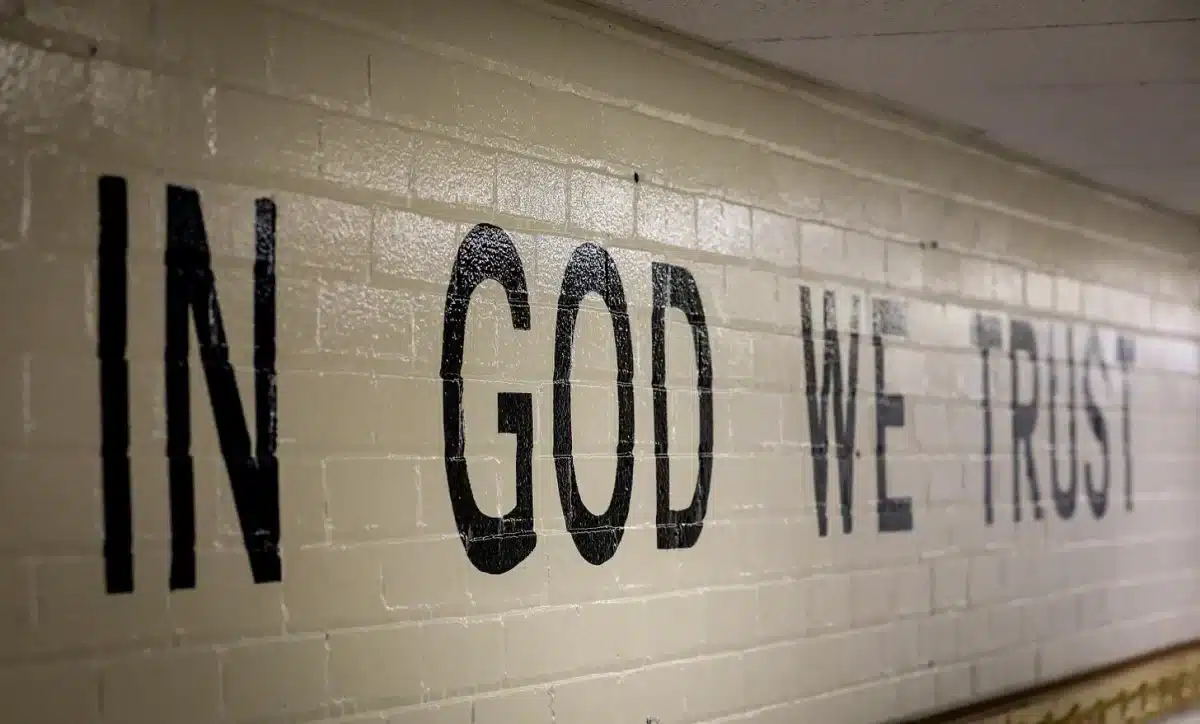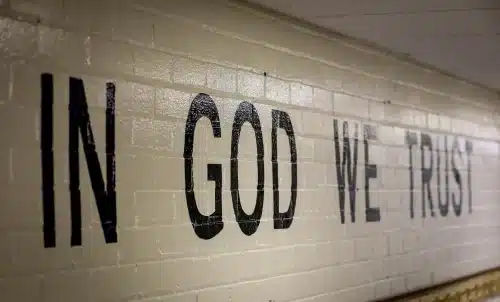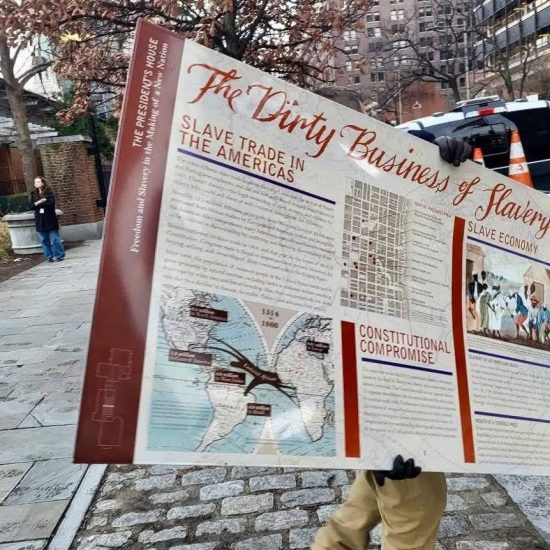
After Buffalo Bills player Damar Hamlin collapsed on the football field while suffering a cardiac arrest last month, Louisiana State Rep. Jack McFarland knew he needed to file new legislation. But the bill he quickly cosponsored has nothing to do with the New Orleans Saints or even athletics in general. Instead, he wants to require every public school classroom in the Pelican State to post the national motto.
“That was a defining moment for a lot of people,” McFarland explained about Hamlin’s collapse. “The game just completely stopped and everybody put everything to the side.”
“I just think there are certain things in this country we can all get behind,” he added. “Why would we not want to teach our children about the national motto?”
Although Louisiana’s legislative session doesn’t start until April, lawmakers are already prefiling bills. McFarland joined with fellow Republican State Rep. Dodie Horton to make the bill to put the national motto in every classroom one of the very first bills.
Several states already require the posting of the national motto in every public school — including Louisiana. Lawmakers passed that requirement in 2018, which was signed into law by the state’s Democratic governor. But Horton doesn’t think that’s good enough, so now instead of the motto in each school she and McFarland want it in every classroom.
“The signs are up usually near the office, but I’ve asked my grandkids if they’ve ever seen it and they said ‘no,’” Horton explained. “But they will see these in their classrooms.”
I hate to break it to Horton, but as the father of an elementary child, I’m pretty sure that even if she amended the bill to put the motto on every classroom desk that wouldn’t mean kids would necessarily read it! She wants kids to see the motto because she believes it “sends an important message to our children as a sign of hope.” I’m sure every bullied kid suddenly feels fine the moment they gaze upon the national motto on the wall.

“In God We Trust” stenciled on a wall at South Park Elementary in Rapid City, South Dakota, on July 23, 2019. (Adam Fondren/Rapid City Journal via AP)
When asked about church-state concerns with pushing a declaration about God in the classrooms, Horton insisted it’s not a problem.
“I’m not asking you to accept my God or pushing religion on anyone,” she said. “I just want children to see that there is a creator. I don’t see it as a controversial bill.”
She also called it “one of the most non-controversial bills that you’ll see my name attached to.” Which is quite a claim considering last year she filed bills to name part of a highway after a firefighter who died on duty, increase how much money someone can make preparing foods at home under the cottage food law, and create a “Louisiana Wild Turkey Federation” specialty license plate (okay, so maybe that last one seems a bit … fowl).
 Although Horton and McFarland might not see the bill as controversial, such legislation actually has been as lawmakers in dozens of states have debated proposals to require every school (or even every classroom) to display “In God We Trust.” And it’s a debate that is very much religious and currently occurring in multiple states beyond the land of the bayous. So this issue of A Public Witness will offer a quick class on the history of our national motto and recent efforts to put it in schools before considering the elementary flaw with such legislation.
Although Horton and McFarland might not see the bill as controversial, such legislation actually has been as lawmakers in dozens of states have debated proposals to require every school (or even every classroom) to display “In God We Trust.” And it’s a debate that is very much religious and currently occurring in multiple states beyond the land of the bayous. So this issue of A Public Witness will offer a quick class on the history of our national motto and recent efforts to put it in schools before considering the elementary flaw with such legislation.
The rest of this piece is only available to paid subscribers of the Word&Way e-newsletter A Public Witness. Subscribe today to read this essay and all previous issues, and receive future ones in your inbox.






